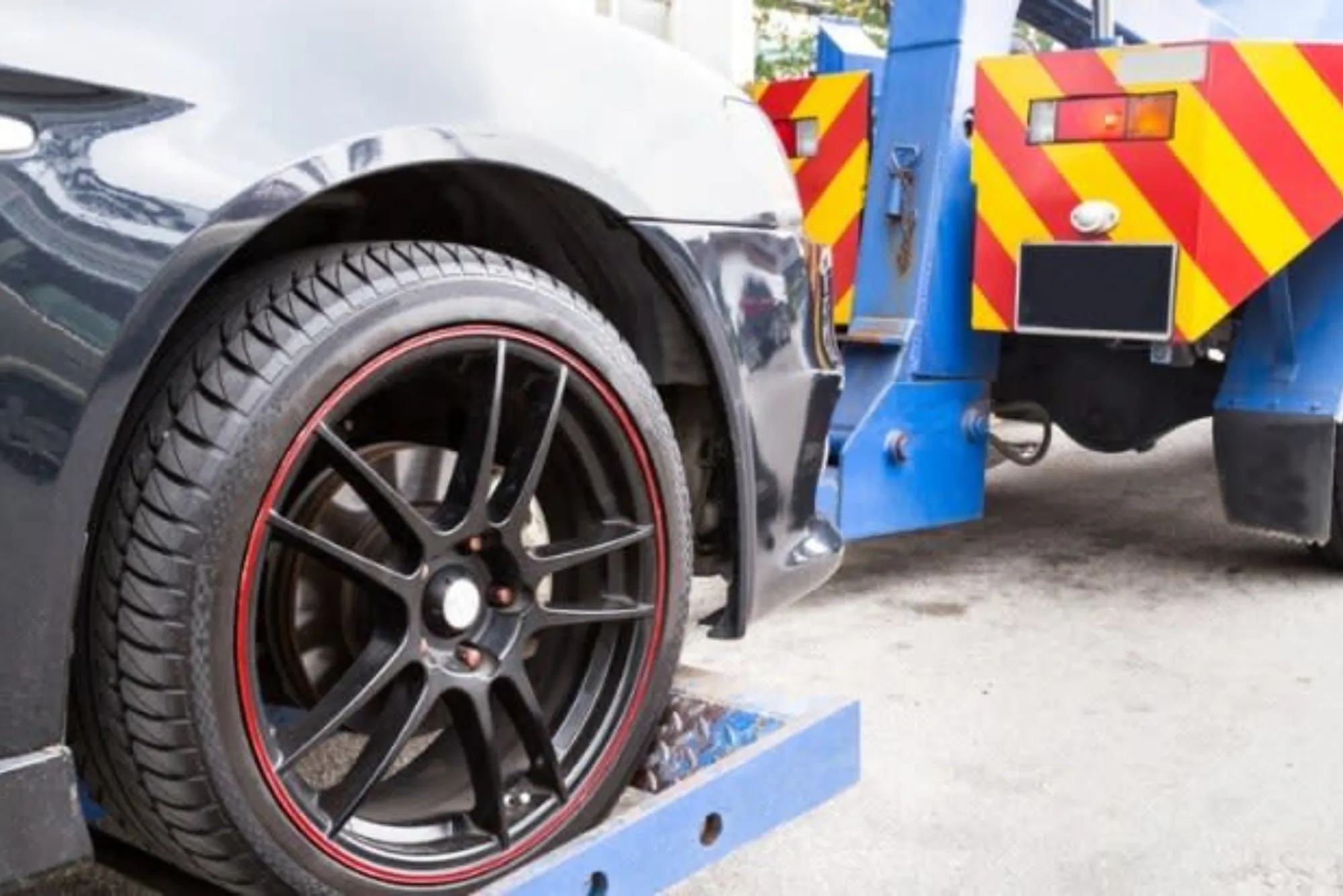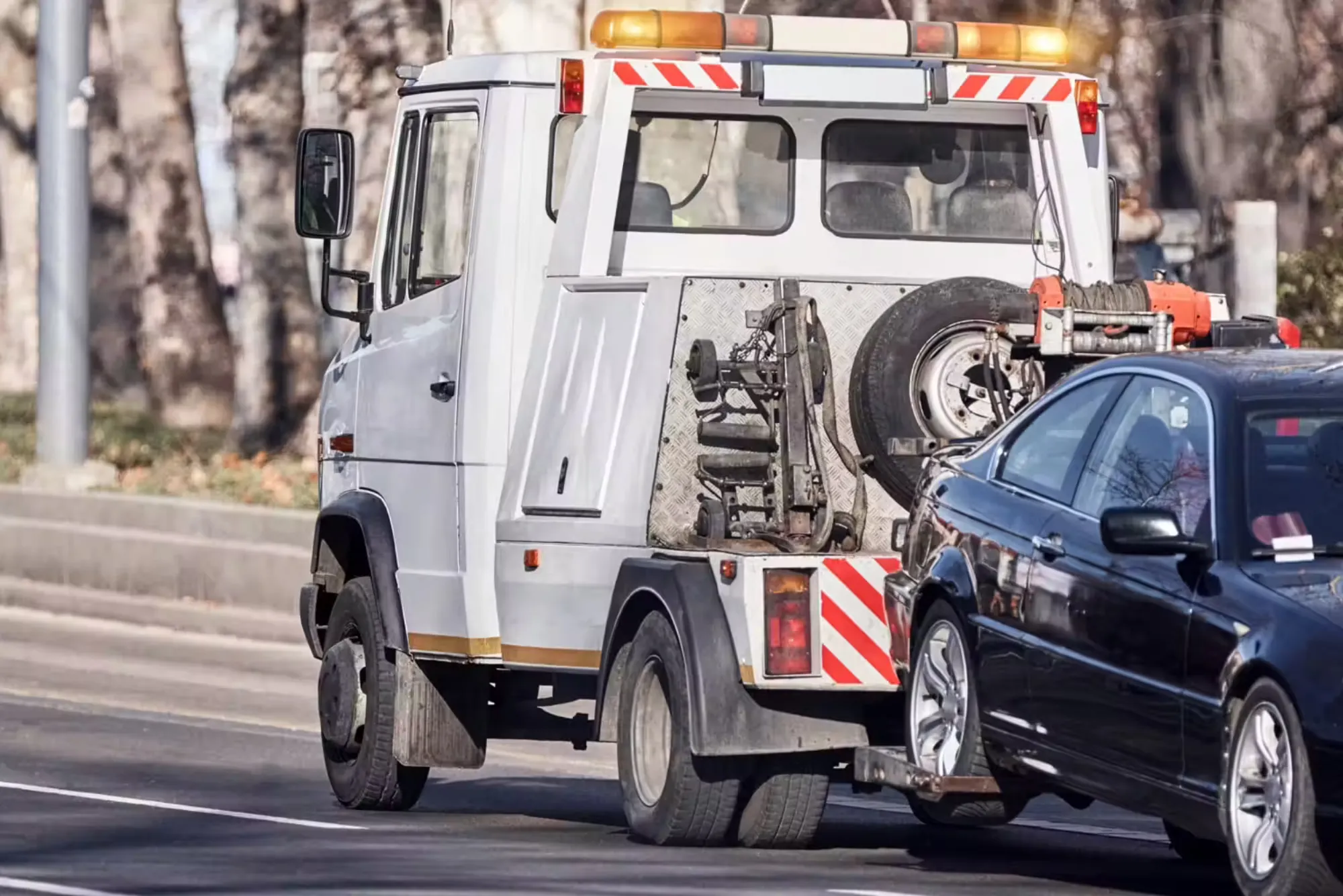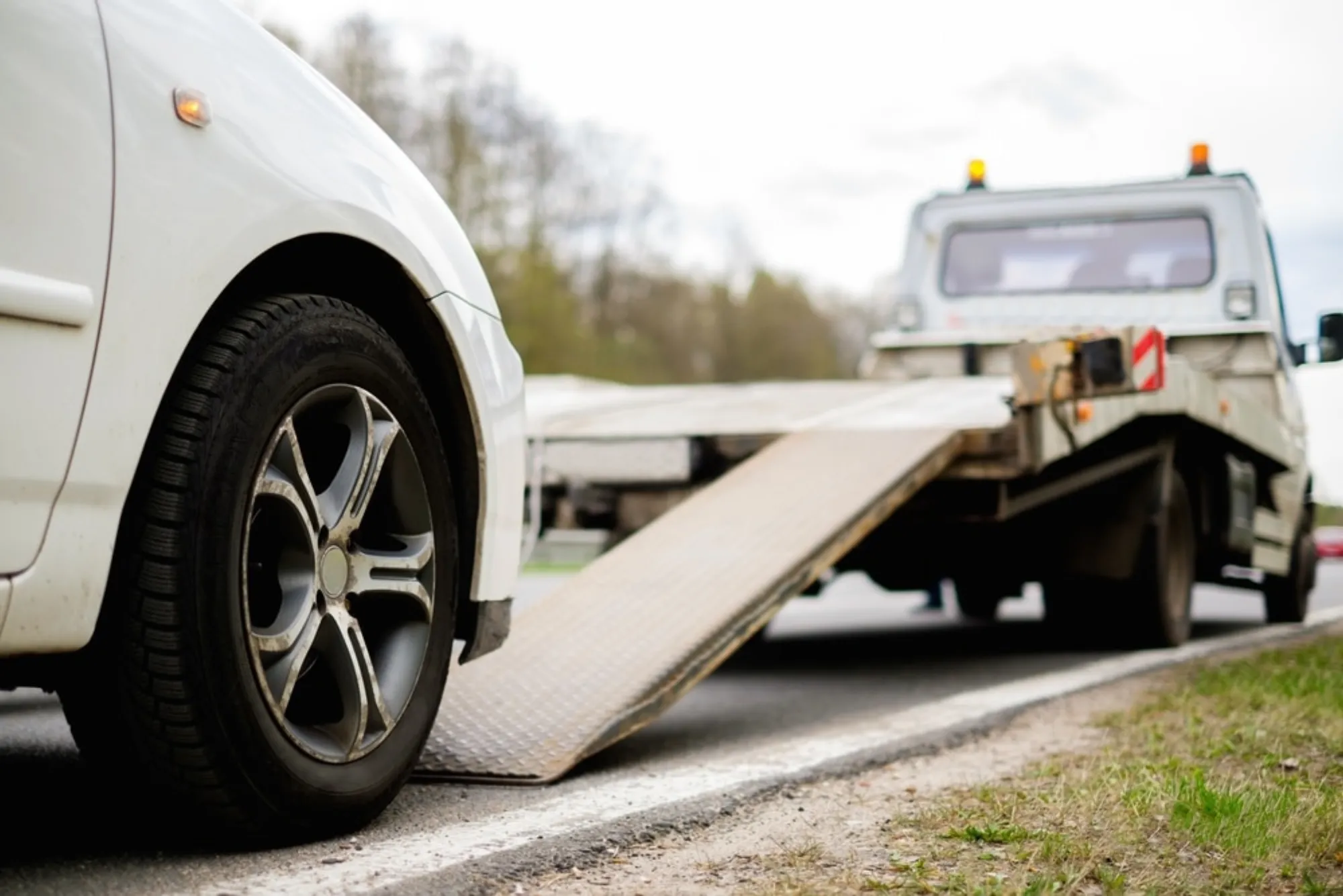Car repossession is a stressful and often confusing process, especially when you’re dealing with financial difficulties. If you’re wondering, “When will CPS repo my car?” this article will provide you with an in-depth understanding of the repossession process, how to prevent it, and what to do if it happens. We’ll cover everything from missed payments to your rights after repossession. This guide will equip you with the knowledge needed to navigate the situation effectively.
What Is CPS Repossession?
Before diving into the specifics, it’s essential to understand what CPS repossession entails. CPS (Consumer Portfolio Services) is a subprime auto lender that provides financing to individuals who may not qualify for traditional loans due to credit issues. As with any lender, CPS has the right to repossess your vehicle if you default on your loan.
Repossession means the lender takes back the car due to non-payment or breach of contract. This can happen at any time, depending on the terms of your agreement and state laws.
Why Would CPS Repo My Car?
There are several reasons why CPS might decide to repossess your vehicle. Understanding these reasons can help you avoid repossession or prepare for it if it becomes inevitable.
1. Missed Payments
The most common reason for repossession is missed payments. If you fail to make your monthly payments on time, CPS has the right to repossess your vehicle. Typically, repossession may occur after two or more consecutive missed payments, but it can happen after just one missed payment, depending on your loan terms and the lender’s discretion.
2. Default on Loan Agreement
Defaulting on your loan agreement can lead to repossession. Default occurs when you fail to meet the terms of the contract, such as making late payments consistently, not maintaining proper insurance, or violating other terms stipulated in the loan agreement.
3. High-Risk Borrowers
If you are considered a high-risk borrower due to poor credit history or previous defaults, When will cps repo my car may be more inclined to repossess your vehicle if you show signs of financial instability.
How Many Payments Can You Miss Before CPS Repos Your Car?
One of the most frequently asked questions is, “How many payments can I miss before CPS repos my car?” While the specific number of missed payments varies, here’s a general guideline:

1. First Missed Payment
After missing your first payment, CPS will typically send you a reminder notice or call to inform you of the overdue payment. At this stage, the lender is more interested in getting you back on track rather than repossessing your car.
2. Second Missed Payment
If you miss a second payment, CPS may consider you a higher risk for default. You might receive a more urgent notice or a phone call, and the threat of repossession becomes more real. Some lenders may even initiate the repossession process after the second missed payment, depending on your loan agreement.
3. Third Missed Payment
By the time you’ve missed three payments, When will cps repo my car is likely to take action. At this stage, they may send you a final notice before repossession or may have already started the process of repossessing your car. This is the most critical time to communicate with your lender and explore options to prevent repossession.
4. Fourth Missed Payment and Beyond
If you continue to miss payments beyond the third month, CPS will almost certainly move forward with repossession. At this point, the lender has likely determined that you’re unable or unwilling to make payments, and they will seek to recover their losses by repossessing and selling the vehicle.
Signs CPS May Repossess Your Car
Recognizing the signs that CPS may repossess your car can give you time to take action. Here are some red flags to watch for:
- Multiple Missed Payments: Continuous missed payments are the most significant indicator of potential repossession.
- Default Notices: Receiving default notices from CPS indicates that they are taking your missed payments seriously and are considering repossession.
- Frequent Communication from CPS: If you’re receiving more calls or letters than usual from CPS, it could mean they are preparing to repossess your vehicle.
- Increased Interest or Late Fees: If CPS starts adding more interest or fees to your account, it’s a sign that they consider your loan delinquent.
What Happens During the Repossession Process?
If CPS decides to repossess your car, it’s crucial to understand what will happen next. Here’s a step-by-step overview of the repossession process:
1. Repossession Order
Once CPS decides to repossess your car, they will issue a repossession order. This order is typically given to a recovery agent, also known as a repo agent, who is responsible for locating and retrieving your vehicle.
2. Vehicle Retrieval
The repo agent will locate your car and take possession of it, usually without prior notice. They have the right to repossess the vehicle from any location, including your home, workplace, or public areas. However, they cannot breach the peace, which means they cannot use force or break into your garage to take the car.
3. Notification
After the repossession, CPS is required to notify you about the repossession and inform you of your rights. This notice will typically include information on how to retrieve your vehicle, the amount you need to pay, and the steps you must take.
4. Vehicle Storage
The repossessed vehicle is usually taken to a storage facility. You may be responsible for paying storage fees in addition to the overdue loan payments to retrieve your car.
5. Vehicle Sale
If you’re unable to reclaim your vehicle by paying the overdue amount, CPS will sell the car, typically at an auction. The proceeds from the sale will go towards paying off your loan. If the sale amount doesn’t cover the remaining balance, you may still owe CPS the difference, known as a deficiency balance.
Can You Prevent CPS from Repossessing Your Car?
Preventing repossession is possible, but it requires prompt action and communication with CPS. Here are some steps you can take:
1. Communicate with CPS
If you’re facing financial difficulties, the best thing you can do is communicate with CPS as soon as possible. Lenders are often willing to work with borrowers who show a genuine effort to make payments. You may be able to negotiate a payment plan, deferment, or a temporary reduction in payments.
2. Make Partial Payments
If you can’t make the full payment, consider making a partial payment. While it may not completely prevent repossession, it shows CPS that you’re making an effort to pay, which might delay the repossession process.
3. Refinance Your Loan
Refinancing your loan could lower your monthly payments, making them more manageable. This option is especially useful if your financial situation has changed since you first took out the loan.
4. Seek Legal Advice
If repossession seems imminent, consider seeking legal advice. An attorney specializing in consumer rights or bankruptcy can help you explore options such as filing for bankruptcy, which can temporarily halt the repossession process.
What Are Your Rights After Repossession?
Even after your car is repossessed, you still have certain rights that CPS must respect. Here’s what you need to know:

1. Right to Redeem the Vehicle
You have the right to redeem your vehicle before it is sold. This means you can pay off the remaining loan balance, plus any fees associated with the repossession, to get your car back.
2. Right to Notice Before Sale
CPS must provide you with a notice before they sell your vehicle. This notice should include the time and place of the sale, as well as how much you owe.
3. Right to Account for the Sale Proceeds
After the sale of the vehicle, CPS is required to provide you with an account of the sale proceeds. If the sale amount exceeds your loan balance, When will cps repo my car must refund you the difference. If the sale doesn’t cover the balance, you may still owe the remaining amount, known as the deficiency balance.
4. Right to Challenge the Repossession
If you believe the repossession was conducted improperly, you have the right to challenge it. This might include situations where the repo agent breached the peace or where CPS did not follow the correct legal procedures.
Table: CPS Repossession Timeline Overview
| Missed Payments | CPS Action | Outcome |
|---|---|---|
| 1-2 Payments | Reminder calls and notices | Warning, no immediate action |
| 3-4 Payments | Default notices, potential repo | Increased risk of repossession |
| 5+ Payments | Repossession initiated | Car is taken, potential legal action |
What Happens If Your Car Is Repossessed?
If CPS repossesses your car, it’s essential to know what happens next and what options are available to you.
1. Paying the Deficiency Balance
If your car is sold and the proceeds do not cover your remaining loan balance, you will be responsible for paying the deficiency balance. CPS may pursue legal action to collect this amount, including wage garnishment or a court judgment.
2. Impact on Credit Score
Repossession has a severe impact on your credit score. It will remain on your credit report for up to seven years, making it more challenging to obtain loans or credit in the future.
3. Potential Legal Action
In some cases, CPS may take legal action to recover the deficiency balance. This could result in additional legal fees and a court judgment against you.
4. Difficulty Obtaining Future Loans
A repossession on your credit report can make it difficult to secure future auto loans or credit. If you do qualify for a loan, it will likely come with a higher interest rate and less favorable terms.
Can You Get Your Car Back After Repossession?
If CPS has already repossessed your car, you may still be able to get it back by taking specific actions.
1. Redeeming the Vehicle
As mentioned earlier, you have the right to redeem your vehicle by paying off the remaining balance and any associated fees. This is usually the quickest way to get your car back, but it can be expensive.
2. Reinstating the Loan
Some states allow borrowers to reinstate their loan after repossession by paying the overdue amount and any associated fees. This reinstates the original loan terms, allowing you to continue making payments.
3. Filing for Bankruptcy
In certain situations, filing for bankruptcy can halt the repossession process and give you time to catch up on payments. However, this should be considered a last resort, as it has long-term financial consequences.
4. Negotiating with CPS
If you can’t afford to redeem or reinstate the loan, consider negotiating with CPS. They may be willing to work out a payment plan or settlement that allows you to get your car back.
Highlighted Paragraph
Understanding your rights and obligations can significantly impact how you handle the threat of repossession. Being proactive, communicating with CPS, and exploring alternative options like refinancing can help you avoid losing your vehicle. Knowing when and how CPS might repossess your car enables you to take the necessary steps to prevent it or mitigate its impact on your life.
Frequently Asked Questions About CPS Repossession
1. How Long Does CPS Take to Repossess a Car?
The time it takes for CPS to repossess a car depends on several factors, including the number of missed payments, your communication with the lender, and state laws. In some cases, repossession can occur after just one missed payment, while in others, it may take several months.
2. Can CPS Repossess My Car Without Notice?
Yes, in most states, CPS can repossess your car without prior notice. This is because, in many cases, lenders are not required to notify you before repossessing your vehicle if you are in default on your loan.
3. What Should I Do If I Can’t Afford My Car Payments?
If you can’t afford your car payments, it’s essential to act quickly. Contact CPS to discuss your options, such as refinancing, payment deferment, or setting up a payment plan. The sooner you address the issue, the more options you will have to avoid repossession.
4. How Will Repossession Affect My Credit?
Repossession will significantly impact your credit score, as it is considered a severe derogatory mark. It will remain on your credit report for up to seven years, making it difficult to obtain new credit or loans during that time.
5. Can I Get Another Car Loan After Repossession?
Yes, it’s possible to get another car loan after repossession, but it will be more challenging. You may need to work with subprime lenders who specialize in high-risk borrowers, and you can expect higher interest rates and less favorable loan terms.
Dealing with the possibility of CPS repossessing your car can be overwhelming, but understanding the process, your rights, and the steps you can take to prevent it can make a significant difference. Remember, communication is key—if you’re struggling with payments, reach out to CPS as soon as possible to explore your options. By being proactive and informed, you can navigate this challenging situation with greater confidence and potentially avoid repossession altogether.




